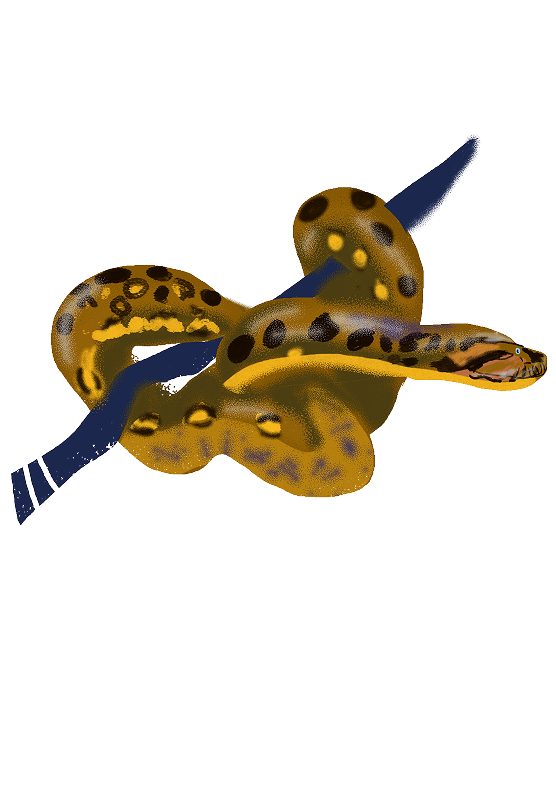OUR ROUTE
A 3,000 km river journey connecting the Andes with the Amazon, with our destination: the COP30. We sail to connect territories, spotlight threats and solutions, and bring the voices of Indigenous, Black, and frontline communities to the center of climate decisions at COP30.
OUR ROUTE
A 3,000 km river journey connecting the Andes with the Amazon, with our destination: the COP30. We sail to connect territories, expose threats and solutions, and bring the voices of Indigenous Peoples, organizations, movements, and coalitions of territorial defenders to the center of climate decisions at COP30.
ITINERARY
Immerse yourself in the day-to-day of our historic 20+ day navigation through the Amazon basin. Here you can access the detailed schedule of the caravan, with dates, locations, activities, and the organizations that will accompany us and that we will visit at each stage of the journey.
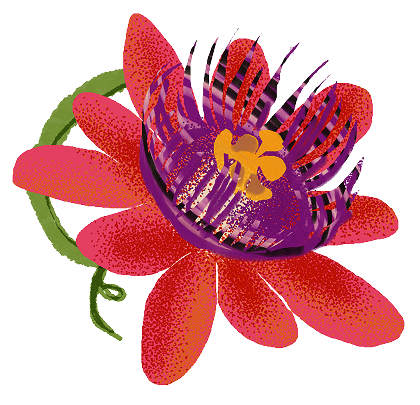
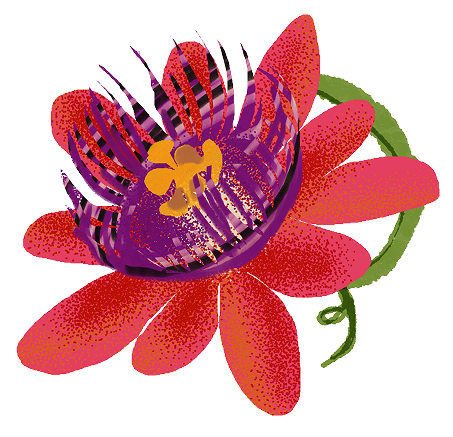
ITINERARY
Immerse yourself in the day-to-day of our historic 20+ day navigation through the Amazon basin. Here you can access the detailed schedule of the caravan, with dates, locations, activities, and the organizations that will accompany us and that we will visit at each stage of the journey.


EVENT AGENDA
Each point on this map is a strategic stop, a story, and an act of resistance. On our journey, we will show the two sides of the Amazon basin: the deep scars of extractivism and the immense strength of the solutions born from Indigenous Peoples, organizations, movements, and coalitions of territorial defenders to confront the climate crisis.
Explore the map and discover the moments that will define this journey in defense of life.
Swipe to see the complete route
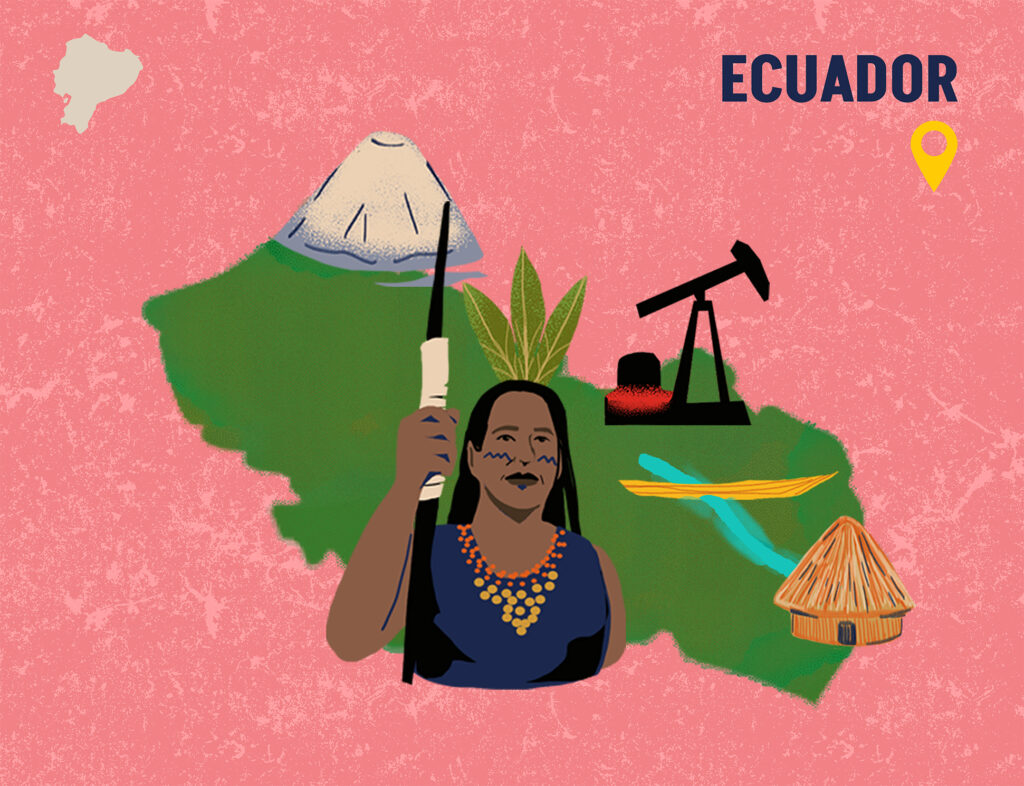
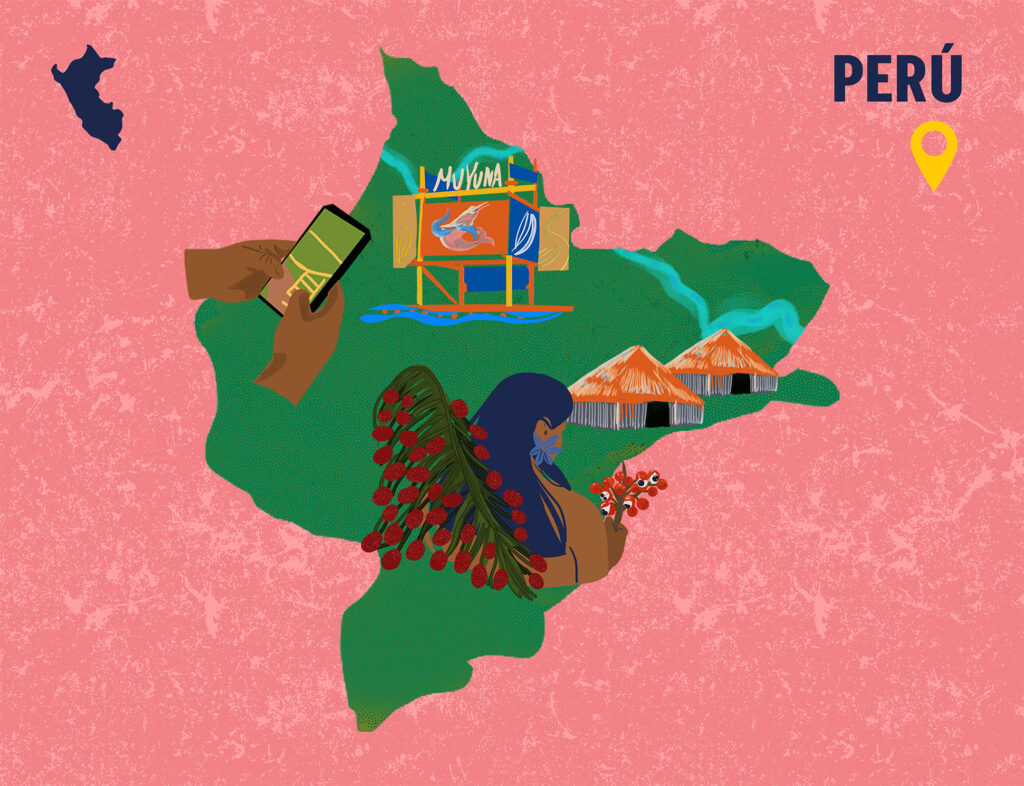
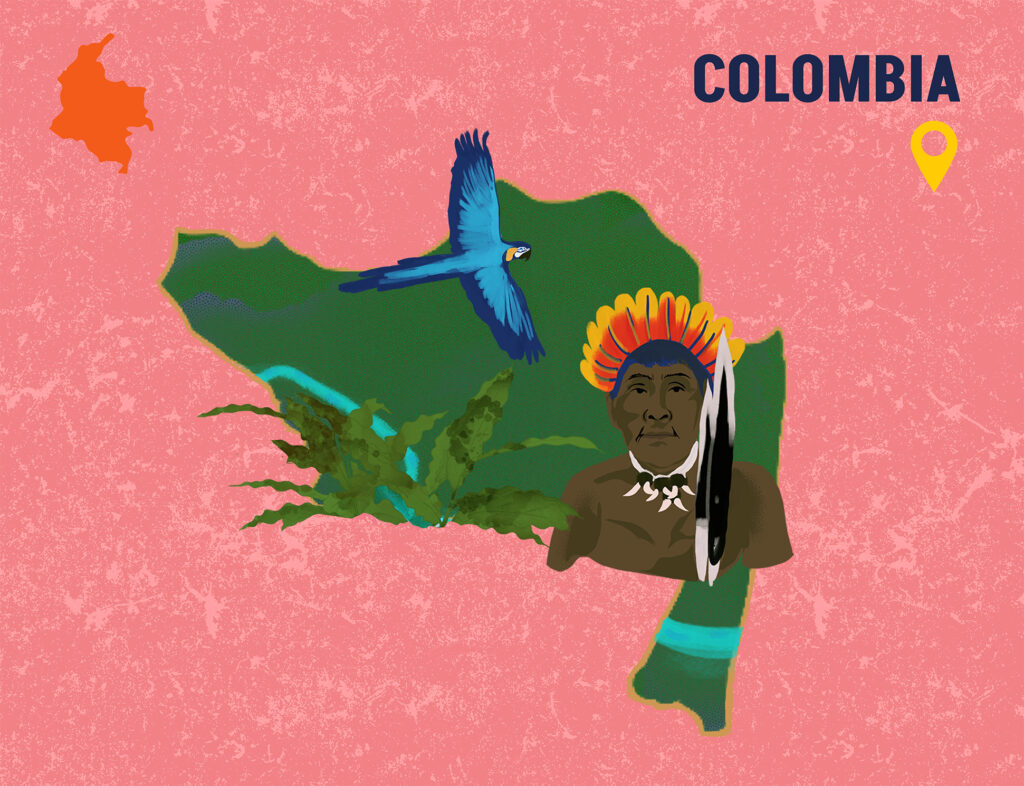
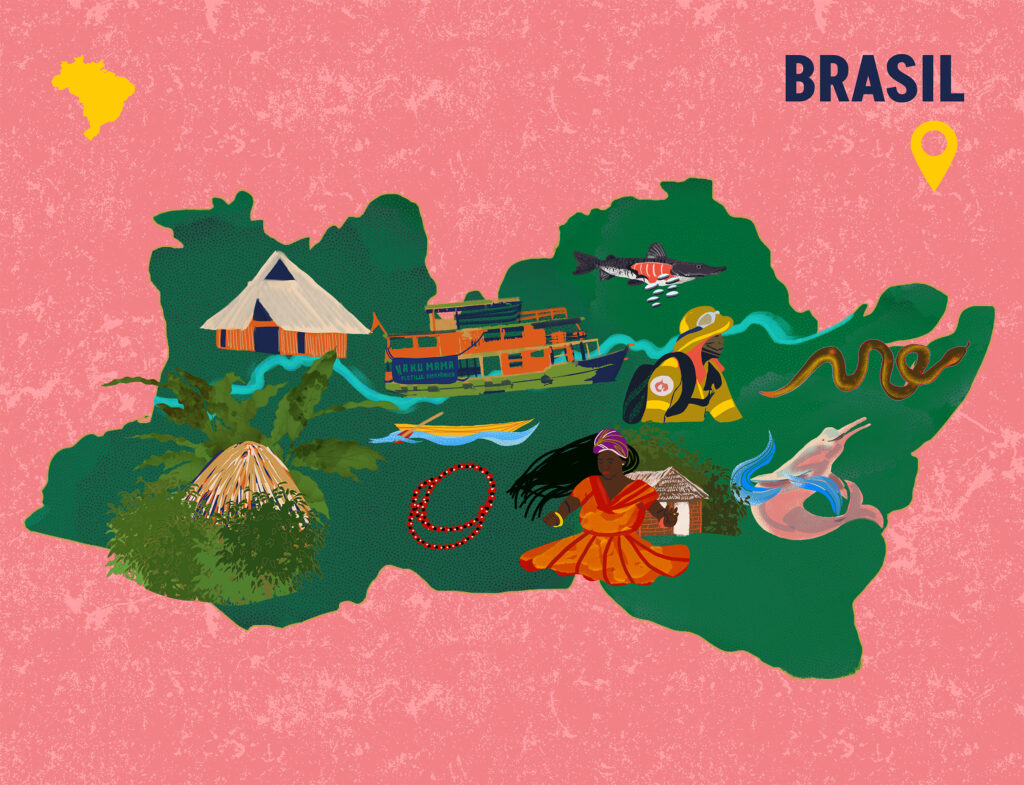
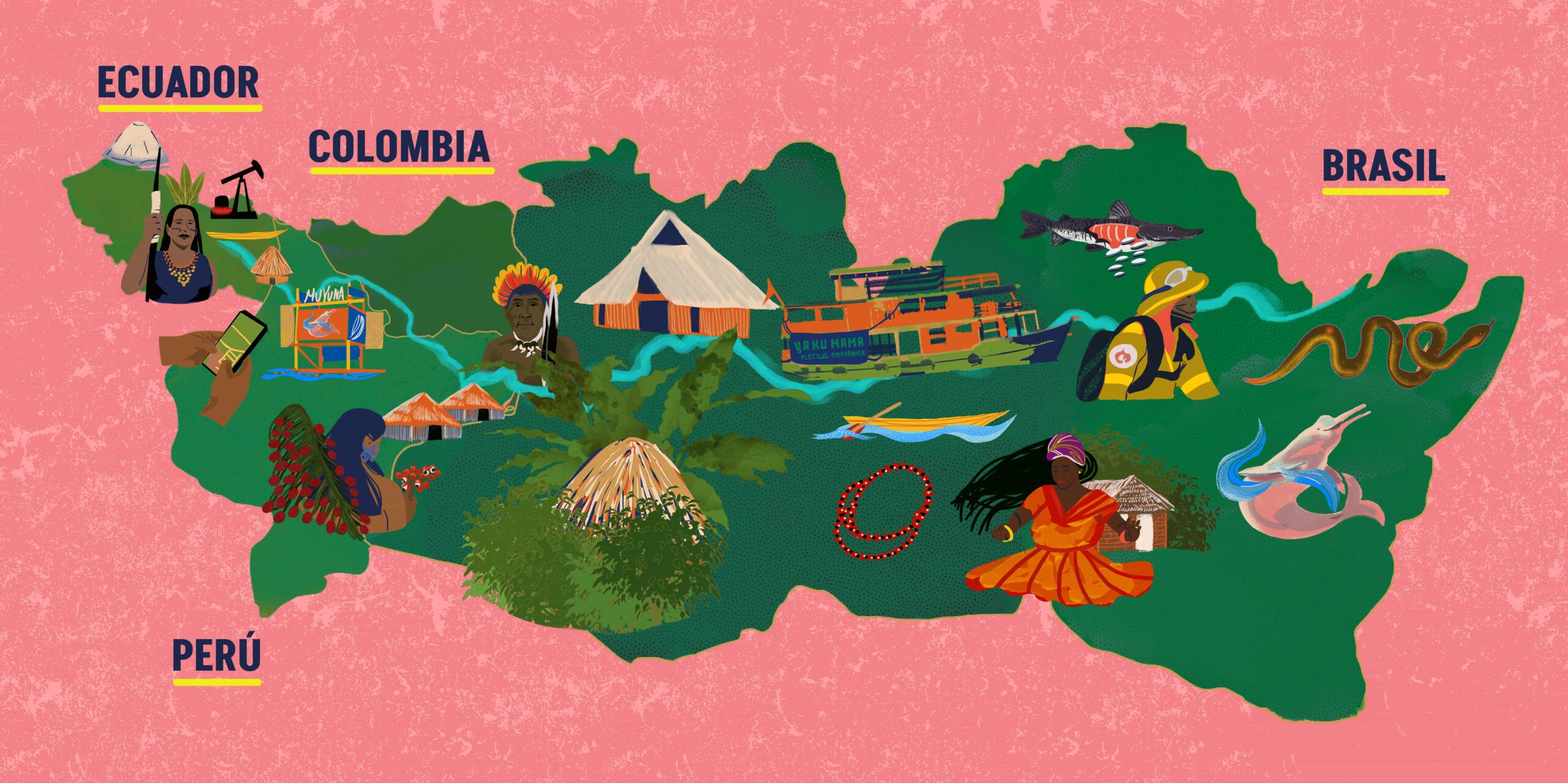





















EVENT AGENDA
Each point on this map is a strategic stop, a story, and an act of resistance. On our journey, we will show the two sides of the Amazon basin: the deep scars of extractivism and the immense strength of the solutions born from Indigenous Peoples, organizations, movements, and coalitions of territorial defenders to confront the climate crisis.
Explore the map and discover the moments that will define this journey in defense of life.
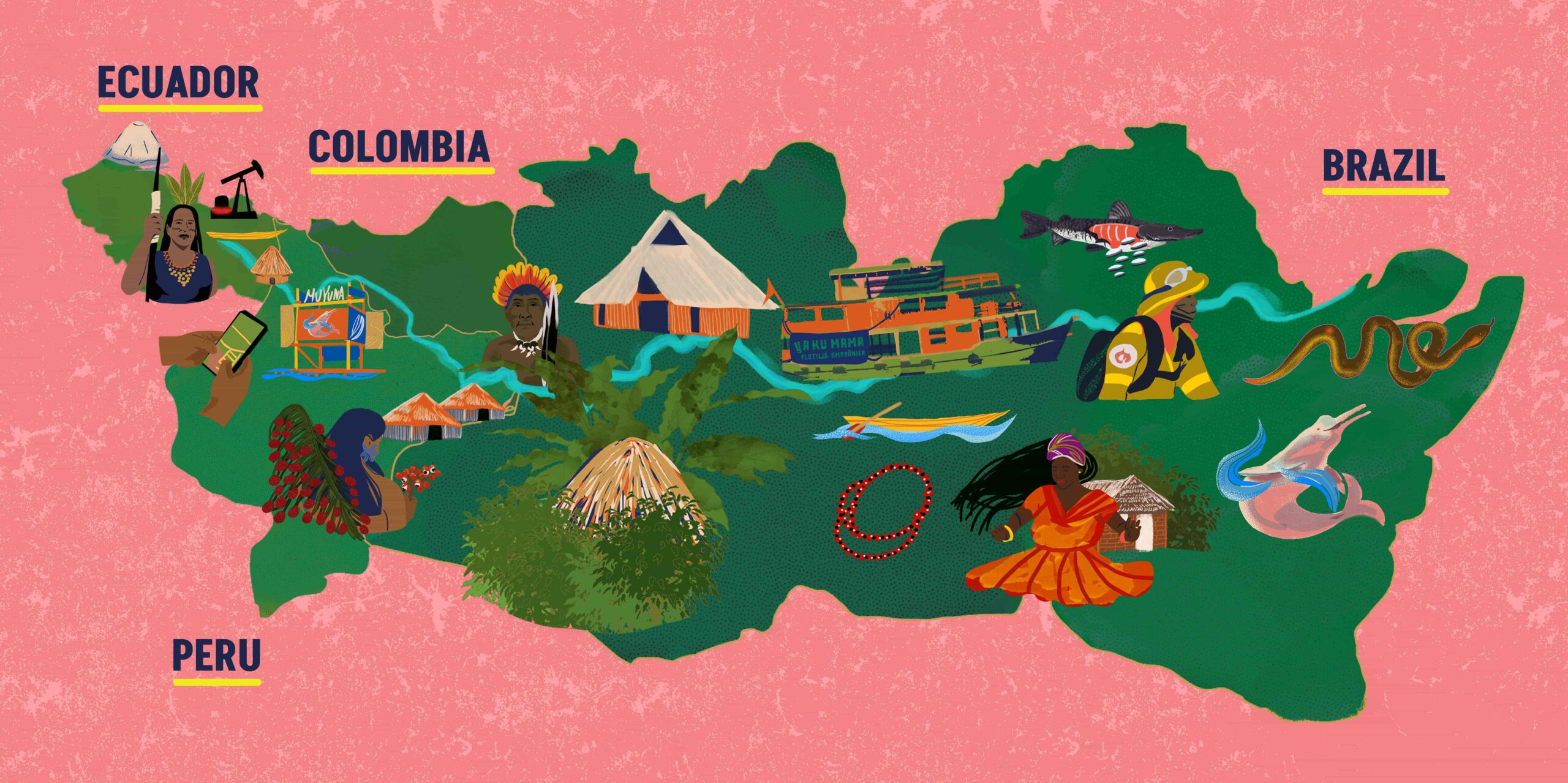



















CREW MEMBERS
Meet the coalition of leaders from the peoples, communities, organizations, and movements that are the heart and voice of this journey. Meet those who are sailing to carry the demands of their peoples and communities to COP30.

LUCÍA IXCHIU
I am a Maya K’iche woman, artist, cultural manager, singer, and community journalist, a defender of the land and Indigenous rights. My work includes architecture, Indigenous storytelling, and filmmaking, which I use to spotlight the struggles of my people.
As the international advocacy coordinator at Festivales Solidarios and the Indigenous coordinator for BILM (Black and Indigenous Liberation Movement), I have dedicated my career to the defense of territory and justice.
I am currently in exile due to my work against impunity and corruption. My voice represents a resistance in motion, weaving a future based on unity and diversity.
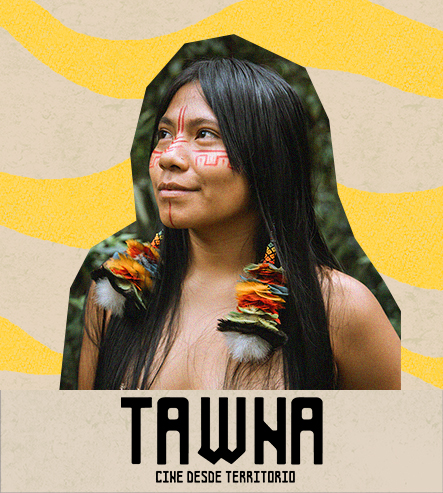
MUKUTSAWA MONTAHUANO USHIGUA
I am Mukutsawa Montahuano Ushigua, a young communicator from the Sápara Nation of Ecuador. My role is to tell and share the stories and memories of my people through film and community communication.
My fight is for the defense of the forest and our culture, because in every story and every image, we affirm that we are still alive and resisting.
The Caravan is important for me and my community; it allows us to weave connections with other peoples and movements, share our voices, and strengthen our struggle. It is a meeting space where we show that communication is not just a tool, but also an act of care and resistance. To participate means to continue defending our territory, our languages, and our collective dreams.

LEO CERDA
As an Indigenous leader and activist, I am committed to defending the rights of Amazonian and Black peoples, as well as preserving the environment. With my background in International Relations, I have dedicated my career to promoting climate and social justice.
I am part of the Quipa Collective and a founder of BILM, a movement that has united communities in 22 countries to fight for their rights and protect the environment. My leadership seeks to amplify the voice of my community in international forums.
I have worked on impact investment projects, such as the Hakhu Amazonia Foundation, to create economic opportunities for Indigenous Women. This initiative has generated sustainable income and promoted the preservation of cultural traditions and biodiversity.
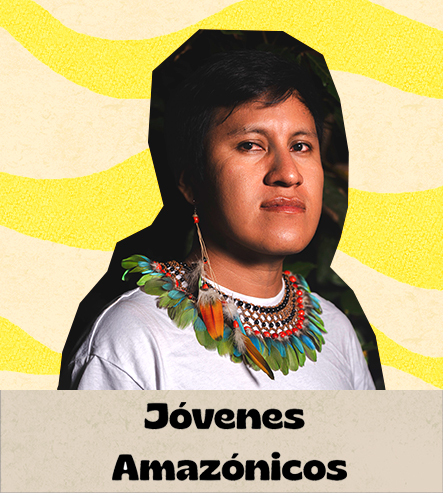
ALEXIS JOEL GREFA
I am a young Amazonian Kichwa man. I dedicate myself to communication and activism in defense of Indigenous rights and the Amazon. I have worked in community media and am now a leader in national and international advocacy spaces.
My work combines communication with activism to make the struggles of Indigenous peoples visible and to strengthen the identity of Indigenous youth.
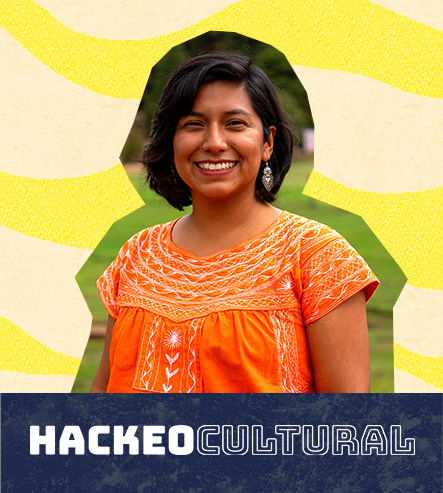
MITZY VIOLETA CORTÉS
I am an Indigenous Woman from the Ñuu Savi people of Oaxaca, Mexico. As a land defender, I use communication and popular education to fight for climate justice for my people. I organize with Indigenous women and youth in collectives like the Futuros Indígenas Network and Hackeo Cultural.
I have supported communication actions, methodology creation, and community projects that position the defense of the territory as a living solution to the climate crisis. In 2022, I was recognized with the Global Citizen award in the environment category and have participated in national and international forums on climate change and gender.
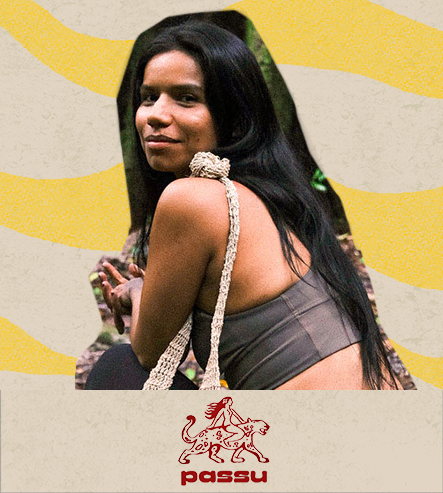
NINA GUALINGA
I am a Kichwa woman from Sarayaku, in the Ecuadorian Amazon. From a very young age, I have fought for the rights of Indigenous Peoples and for Climate Justice. My community, Sarayaku, is known for its legal victory against the Ecuadorian state and oil companies, a historic precedent for Indigenous rights in Latin America.
I am also a co-founder of Mujeres Amazónicas, a collective of Indigenous Women united to confront gender-based violence and resist extractive industries.
Our fight is for life, dignity, and the future of our communities, as well as for the biodiversity for which we have always cared.
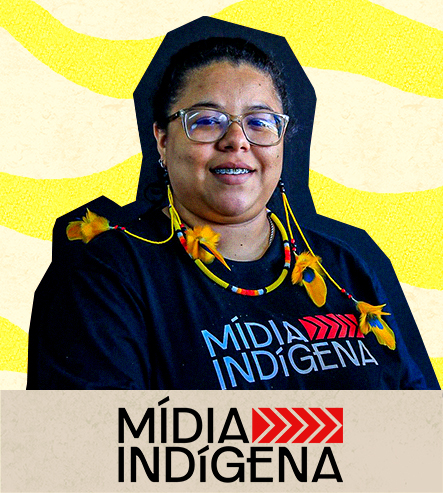
KELLY AIRES
I am an Indigenous Woman, the niece of the great Indigenous leader Sônia Guajajara and of Erisvan Bone, founder of the Mídia Indígena Network, which is now the first Association of Indigenous Communicators in Brazil.
I currently work on social media at the Mídia Indígena Network and as the second secretary of the association. I am part of the Indigenous youth, women, and LGBTQIA+ movements.
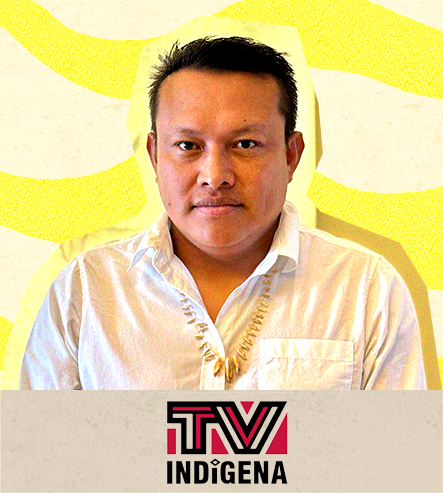
INIQUILIPI CHIARI
I am the founder of TV Indígena, a platform created to amplify the voices of Indigenous peoples who are too often silenced in mainstream media. My role has been to build a space where our stories, traditions, and struggles are told by us, for us.
The journey has not been easy resources are scarce, and there is constant resistance to our right to self-representation but we continue because our identity depends on it. This caravan is a collective act of resistance and hope. It represents our effort to connect communities, share knowledge, and defend our rights and territories. For us, visibility is survival, and through this caravan, we remind the world that Indigenous peoples are alive, fighting, and creating a future grounded in dignity and resilience.
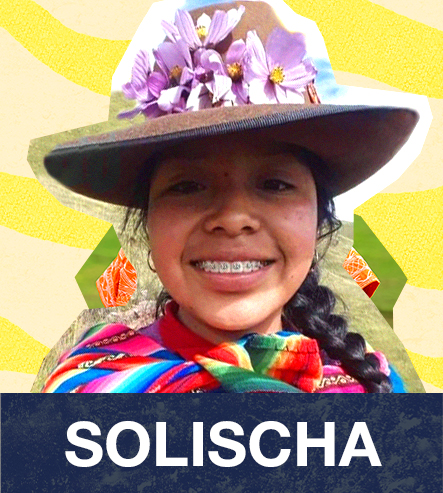
SOLEDAD SECCA NOA
I am a Quechua Indigenous woman, content creator, and anthropologist. My role in this caravan to COP30 is to tell, visualize, and share every step of the journey: not only to show the physical path, but also the deep meaning carried by the voice of Indigenous peoples to an international decision-making space. Taking on this role is vital because our communities often do not have access to these forums or the information generated in those spaces.
I believe in the power of communication as a tool for transformation and as a bridge between communities and the global world. The caravan represents a space for collective learning and also a commitment: to bring back to my community the knowledge, experiences, and shared proposals, to inspire more young people to defend the land, the water, and life.
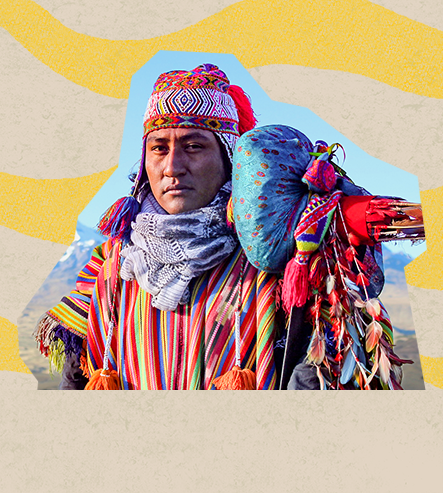
SIWAR GABRIEL PERALTA HUAMÁN
I am Siwar Gabriel Peralta Huamán, a Quechua Indigenous artist and multidisciplinary filmmaker from CuscoMy work seeks to strengthen the memory and identity of Indigenous peoples through film and animation as tools for intercultural dialogue and the defense of the territory.
I am part of the organization of the Muyuna Fest, a floating jungle film festival that promotes community filmmaking processes in Indigenous territories of the Peruvian Amazon.
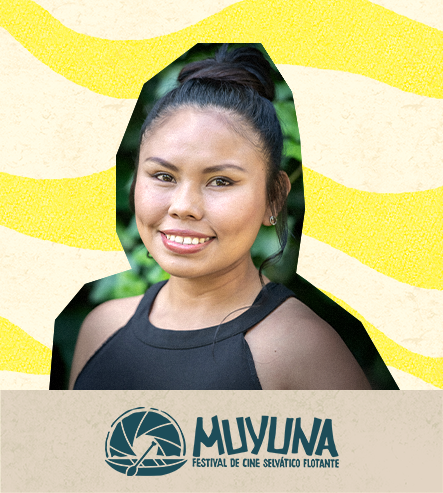
LIVIA SILVANO PACAYA
I am Livia Silvano Pacaya, a Kukama director, producer, and actress from Iquitos, in the heart of the Peruvian Amazon. After winning the National Cinematography Contest, I am preparing to shoot my first feature film, Bufeo, a fictional story that addresses sexual abuse in my community.
I trained in community spaces, and from there I have built my voice, managing projects such as an independent cinema. I am the Co-Director of the Muyuna Fest, a festival that connects the world’s jungles to strengthen Indigenous identity. For me, this caravan is an opportunity to raise our voice from the territory and defend life, art, and memory.
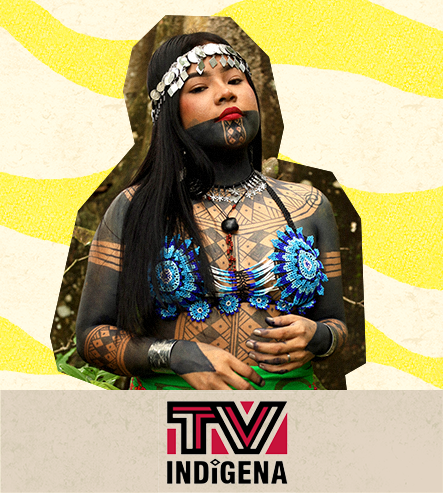
YESIBETH DEGAIZA
I am an Indigenous woman committed to the defense of our territory, our culture, and our rights. I use my social media as a tool for denunciation, resistance, and to bring visibility to the struggles we face every day.
My role is to be a bridge between my community and the digital world, sharing our often-silenced voices. This caravan is important because it allows us to walk together, join forces with other communities, and demand justice from our own ways of feeling and knowing.
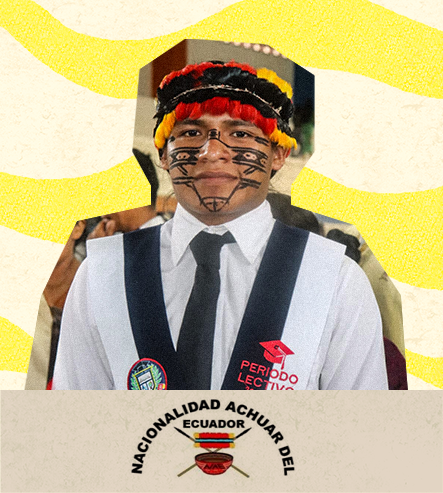
TUNA MILTON SUMPA UYUNKAR
I am a representative committed to strengthening my community and defending our collective rights. My work focuses on promoting sustainable development, citizen participation, and the protection of our territory and ancestral culture.
This caravan represents a space for unity and visibility for our Amazonian communities. To participate is to reaffirm our commitment to social justice, respect for nature, and the well-being of future generations.
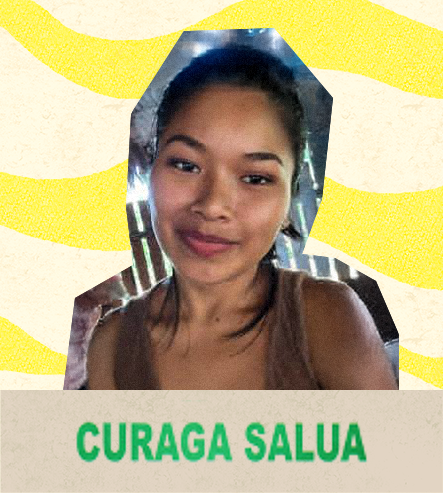
SHEYLA KELY GUALINGA DAHUA
I am part of the youth organization of the Kichwa original people of Sarayaku.
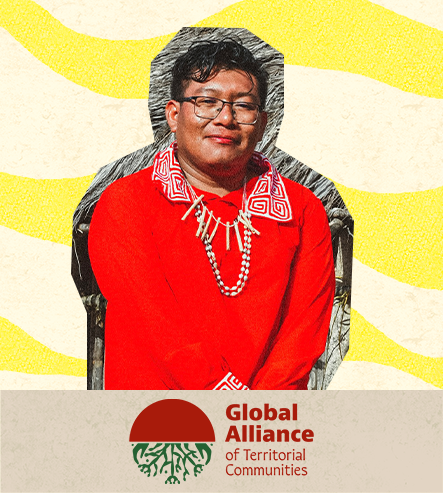
NORLANDO MEZA
I am Norlando Meza, a Guna Indigenous person from Panama, with over 5 years of experience as a Video Editor and Field Videographer. I am currently responsible for the editing and visual coverage for TV Indígena.
Throughout my career, I have worked with various organizations, specializing in creating audiovisual and documentary content focused on cultural, social, environmental, and territorial narratives.
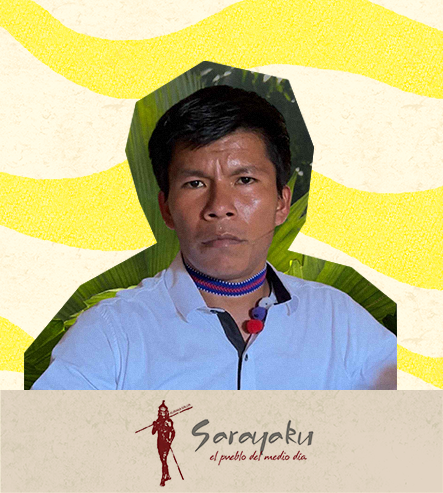
VALERIO SANTI
I am a communications leader for Sarayaku. Together with our community’s filmmaker, I have been creating videos and photographs in defense of the Amazon.
This journey along the Amazon River inspires me deeply, because it represents an opportunity to raise our voice and reaffirm that the Amazon is defended by uniting the forces of the peoples and countries of all of Latin America.
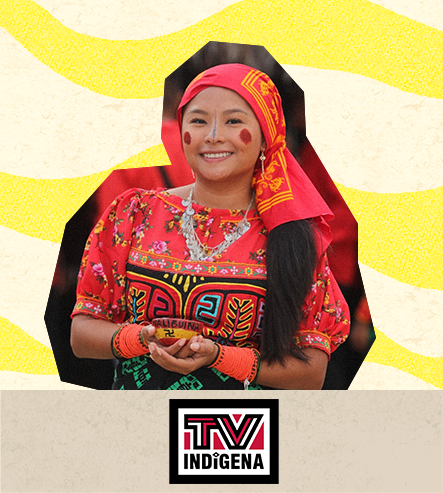
KUNSOB WAYNASOB ALFARO LÓPEZ
I am Kunsob Waynasob, an Indigenous person from Guna Yala, Panama. I am part of TV Indígena, where we produce reports and stories that give visibility to the realities, struggles, and knowledge of Indigenous territories.
My work seeks to strengthen our voices and show that communication is also a form of resistance. Participating in the caravan is an opportunity to highlight how our communities are facing the climate crisis from our own knowledge and spirituality.
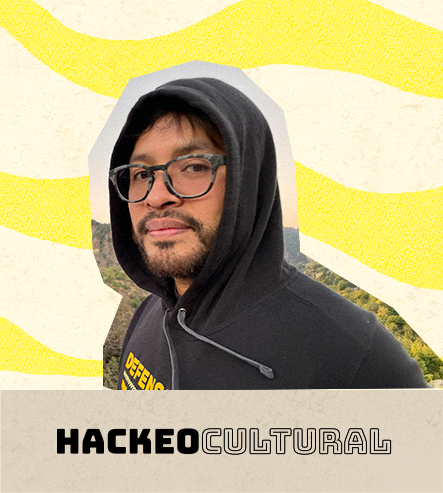
FEDERICO ETIENE ZUVIRE CRUZ
I am Federico Zuvire, from Morelos, Mexico. I work with narratives, transmedia, action art, and community filmmaking.
I am a co-founder of the Hackeo Cultural collective, which works with social movements on territorial defense and the fight against the climate crisis.
I studied filmmaking and have been an active participant in movements like #YoSoy132 (2012), #Rexiste (2013), #YoPrefieroElLago (2018), #ElijoDignidad (2019), #CuraDaTerra (2020), #FuturosIndígenas (2021), #MilpaméricaResiste (2022) y Bertha Challenge Fellow (2020-2021).
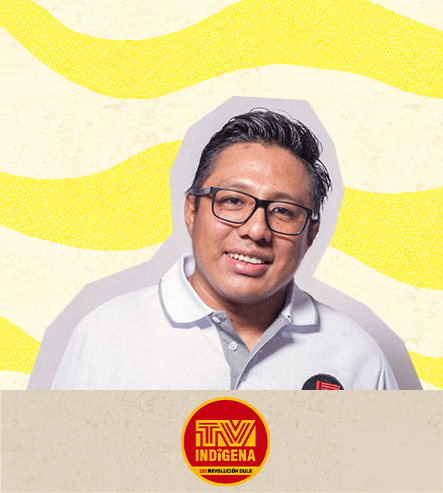
GIUSEPPE VILLALAZ
I am Olo Villalaz, from the community of Usdub, Gunayala (Panama), and founder of TV Indígena, a platform that gives visibility to the voices and realities of the Indigenous Peoples of Abya Yala.
My work focuses on the defense of rights, intercultural communication, and climate action. For over a decade, I have worked to strengthen Indigenous participation in decision-making spaces. The Amazon Flotilla represents an opportunity to unite our voices as peoples, share experiences of resistance, and show the world that our struggles are for life, justice, and balance with Mother Earth.
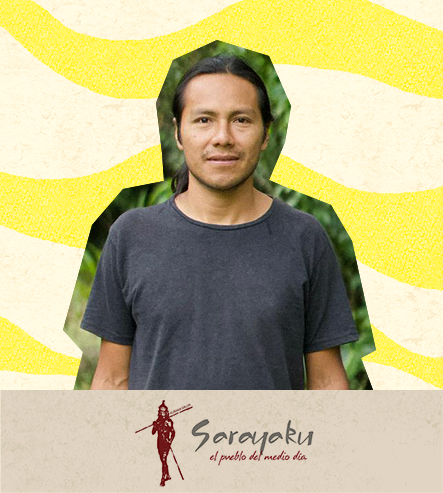
TULIO RENATO VITERI GUALINGA
I am the leader of international relations for the Kichwa original people of Sarayaku. I believe that these spaces of struggle are important to influence the defense of nature.
As part of a people that has always been against the exploitation of resources, for me, it is highly relevant to generate spaces for debate in each territory.
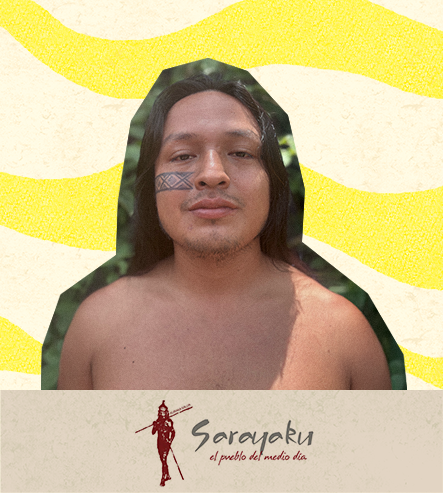
UBER GUALINGA
I come from the Kichwa original people of Sarayaku and I am part of the communications team. My commitment is born from the desire to tell our stories from our own voice. Through communication, I seek to make visible the struggles, the knowledge, and the resistance of our people.
Participating in this caravan represents a unique experience and a profound learning opportunity alongside other young people of different nationalities. It is a space to share knowledge, strengthen unity, and continue defending life and the jungle. This experience inspires me to keep learning, to listen more, and to communicate from the heart, with respect for the word and the ancestral wisdom that guides our steps.
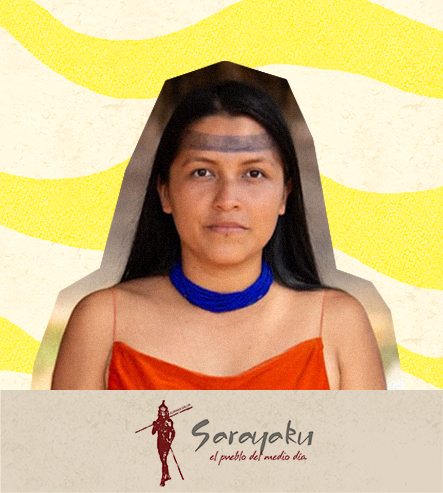
KATTY GUALINGA
I am Katty Gualinga, a youth leader of the Original People of Sarayaku. Our struggle as youth is born from the injustices and inequalities we face. Our grandparents have resisted for generations to keep our territories free from extractive companies. Today, we remain firm in the face of a government that seeks to break our ways of life.
Being in this caravan is important because it allows us to meet, to build alliances with other peoples and communities. We firmly believe that only united, with solidarity and organization, can we face any adversity and defend our territories and our dignity.
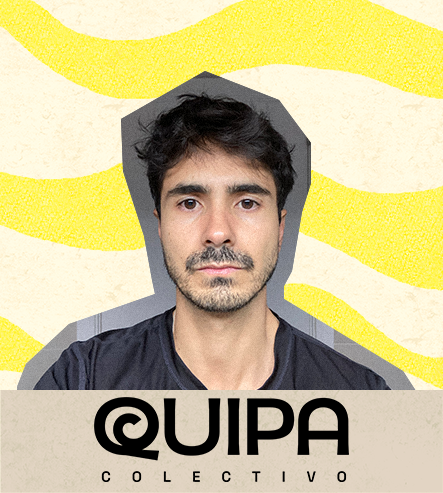
JORGE ANDRÉS ESPINOSA ESTRELLA
I am an LGBTI+ activist and a defender of Yasuní. My work focuses on the development of infrastructure for ancestral communities and peoples.
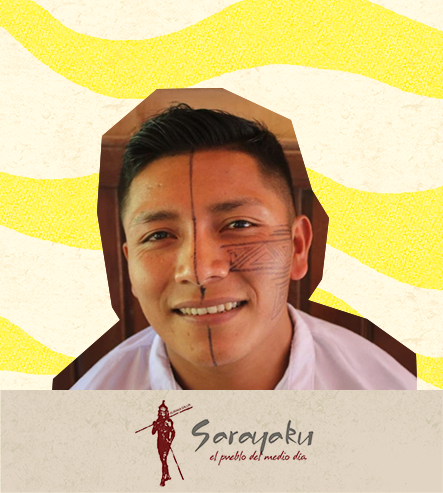
JOEL WAYNER MALAVER CUJI
I am a young man active in the processes of struggle and resistance to protect the territory and the Living Forest (Kawsak Sacha).
My participation in the caravan seeks to make visible the voice of resistance of the Sarayaku people against the threat of extractivism. Likewise, I know this work will help to advocate with our Proposal. I want to help promote our proposal of life of Kausak Sacha and Kawsay Ñambi at COP30 in Belém, Brazil.
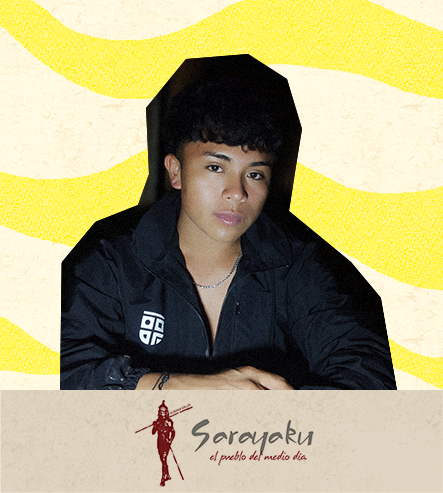
SEBASTIÁN ALFREDO ORTIZ SANTI
I am a student at the “Escuela Viva de la Amazonía” (Living School of the Amazon), where I am training to be a good leader and to serve my people.
I was delegated by the governing council of Sarayaku to accompany the communications leader on this journey.
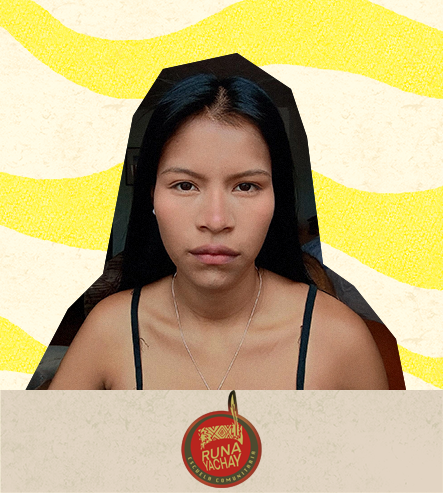
CINTHYA KAREN GREFA VARGAS
As a young person from my community, it is important for me to learn from other cultures and other knowledge systems.
Through this caravan, I seek to show my culture and motivate more young people to fight for our lives, our jungles, our knowledge, and our ways of life.
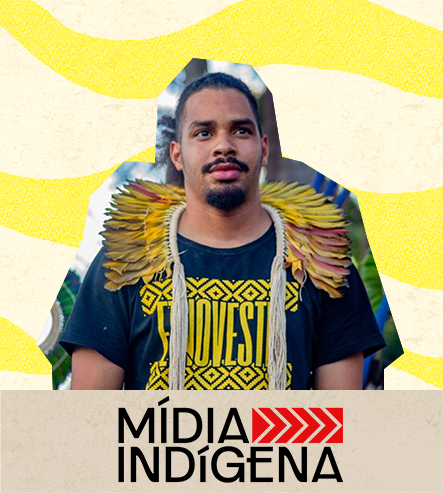
LEVI TAPUIA
I am an Indigenous communicator from the Tapuia and Kariri people. I work in Indigenous health throughout Brazil, as well as in the fight against racism and for protection against the climate crisis using audiovisual media.
I am part of Mídia Indígena. I use my voice to help visualize the realities and knowledge of our territories.
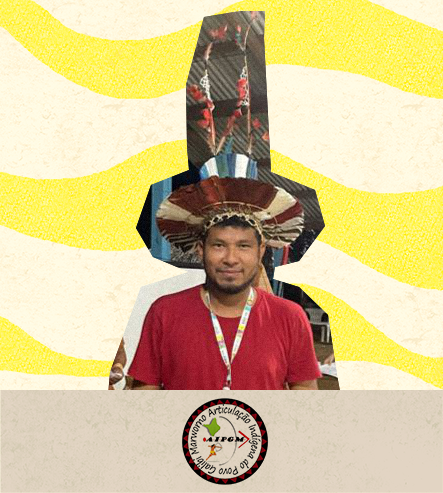
ORINEIO MONTEIRO NUNES
As a representative of my people, my role is to learn about the places affected by oil exploitation and the climate crisis impacts it has caused other peoples. I am particularly interested in understanding the effects of oil expoitation and the damage it has caused to other peoples
When I return to my community, I want to be able to report with authority on my travel experience and explain how oil and other forms of exploitation affect the environment and climate change.
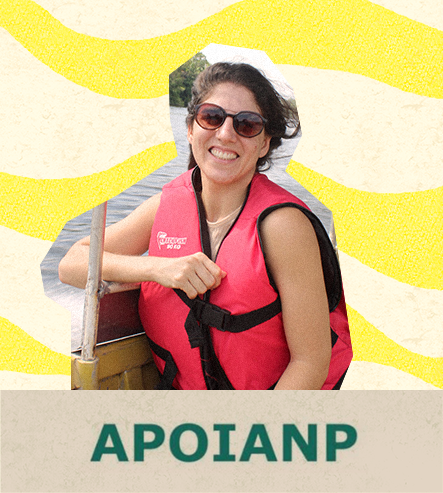
LETÍCIA YUMI BENETTI DA SILVA
My mission is to give a voice to those who suffer from the impacts of fossil fuels in their territories and are never heard in the construction of energy projects
I seek to make visible the realities and struggles of communities facing the climate crisis and extractivism, centering their ways of knowing and lived experiences in the global debate.
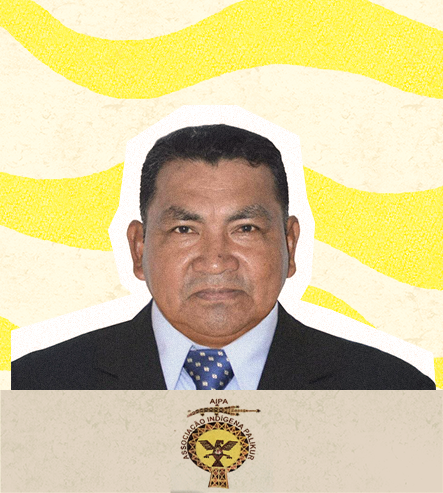
GILBERTO IAPARRÁ
To me, this opportunity is fundamental to bring our anguish, to meet and discuss with our relatives. I want to contribute to the fight of Indigenous peoples.
My goal is to strengthen the unity among communities to face the climate crisis and territorial defense hallenges
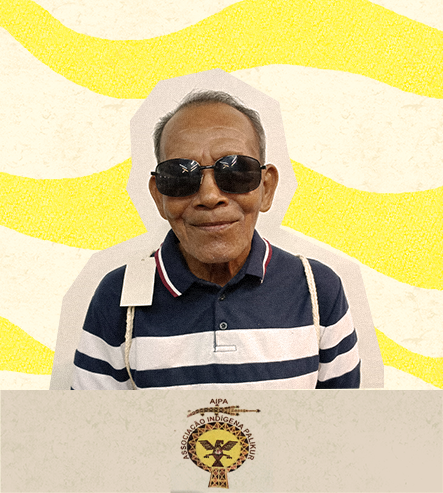
MATEUS EMILIO
I want to get to know and see the brotherhood among Indigenous peoples. In Amapá, there is a discussion happening about oil, but we don’t know the impacts.
I want to learn form other communities that are going through the same situation. It’s fundamental that we are able to learn from their experiences to improve the defense of out territory.
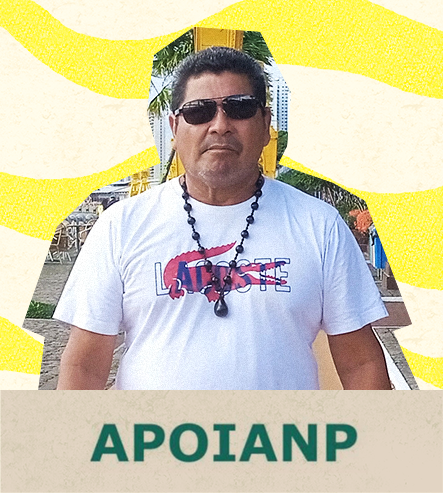
WAGNER DOS SANTOS KARIPUNA
I want to learn about the environmental consequences our relatives are suffering. It is important for me to understand the impacts of extractivism and the climate crisis on other communities.
With this experience, I will be able to strengthen my people’s struggle and resistance.
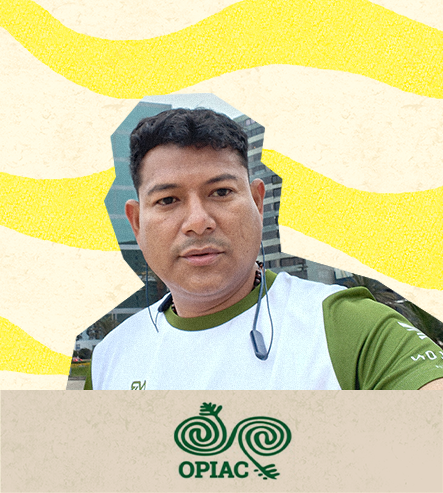
JESÚS ANTONIO OTAYA CHARRY
I am an Indigenous leader of the Murui people from Putumayo. We fight for the recognition of our territories and knowledge systems as a fundamental contribution of the Amazonian Indigenous peoples to climate action.
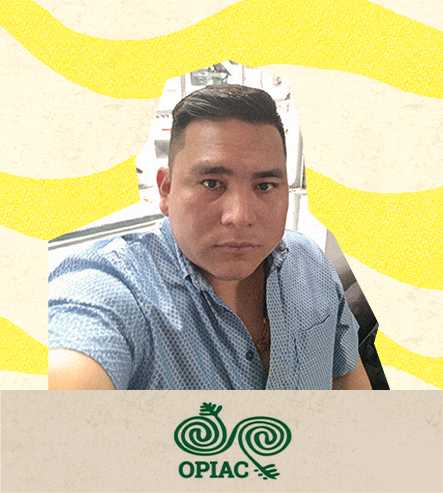
MARTIN DAVID CHARRY CUELLAR
I am Martin Charry, from the Murui people, located in the high reservation of Predio Putumayo in Colombia. For more than a decade, I have been promoting the process of cultural revitalization and strengthening in my territory, listening to and putting into practice the advice of our male and female elders.
My role as a leader has been to raise awareness in our communities and especially among the youth, who today have been playing a leading role in the defense, use, care, management, and administration of our natural resources based on our own knowledge systems. We have faced processes and we were able to demand and say no to hydrocarbon extraction projects in the territory. This caravan is important in the sense that by sharing experiences and knowledge, we can generate strategies for the defense and care of the territories while at the same time weaving networks of cooperation.
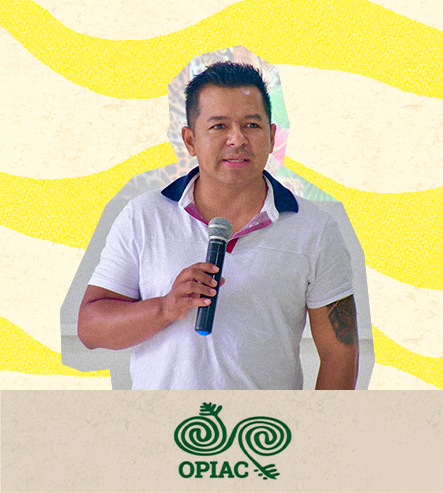
RONAL GREGORIO CUBEO LÓPEZ
I serve as the leader of the Geographic Information Systems office of the OPIAC, where I have led projects on prior consultation and energy-related topics.
I am a geographer by training, a specialist in Appraisals, and have a master’s degree in State Law. I am a delegate for the Energy Transition event.
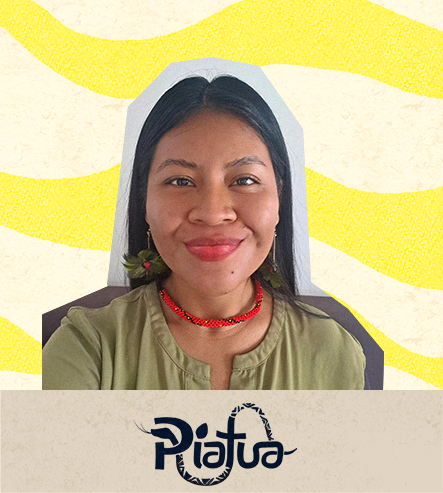
JESSICA JUDITH GREFA HUATATOCA
I am from the Kichwa people of Santa Clara and I am part of the Piatúa Resiste collective, an organization committed to the defense of rivers, forests, and life.
As a biologist, I focus my work on the study of biodiversity from a perspective that unites science with the ancestral knowledge of my people. My role in the community is to be a bridge between these two worlds, promoting the appreciation of traditional knowledge. also promoting processes of self-education with young people, strengthening their identity, their connection with nature, and their commitment to the future. I firmly believe that the defense of life begins with knowledge, respect, and the union of our voices.
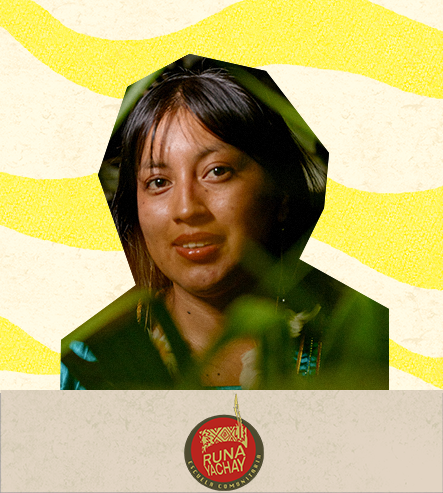
DEIJA LISETTE LLANGARI AGUINDA
I am Deija Llangari, a woman from the Kichwa and Puruwa peoples of Ecuador. I am part of organizations like Runa Yachay and Asopnar-Pastaza, where I have supported various community initiatives. As a health professional, my work on this flotilla is to care for and ensure the well-being of all participants, uniting my knowledge with the realities of the journey.
My role is to be a point of support and care for the crew, ensuring our health is protected as we raise our voices. I see this caravan as an enriching journey where we will share our diverse realities and strengthen our bonds.
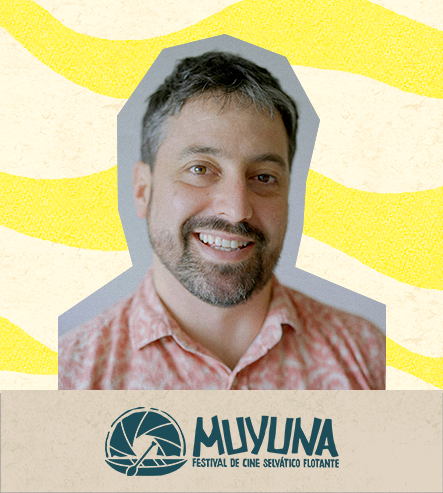
DANIEL MARTINEZ QUINTANILLA PÉREZ
I am Daniel Martínez-Quintanilla, a communicator and co-director of the Muyuna Fest, the floating jungle film festival. As an artivist, my work focuses on the intersection of documentary filmmaking and territorial defense, seeking to create spaces for intercultural encounters and storytelling that connect the realities of the rainforest with the world.
My role on the flotilla is to document and amplify the voices of this journey, turning the screen into an act of resistance. I believe that art is a fundamental tool for struggle, memory, and for building new imaginaries born from the communities’ own desires.
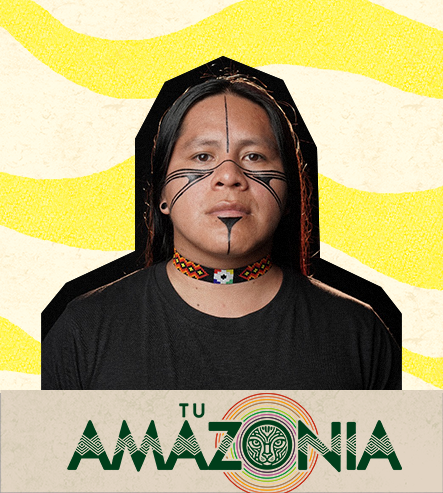
NADINO ABNER CALAPUCHA CERDA
I am Nadino Calapucha, a Kichwa leader from the community of Shiwakucha. My path has led me to represent youth in spaces like COICA and the Pan-Amazonian Social Forum. Today, as president of the Tu Amazonía Foundation, my work focuses on strengthening self-governance and protecting our forests.
My role is to be a bridge between communities and global advocacy platforms. I believe this caravan is a path of unity to demonstrate that, from our territories, we are already building real solutions and are the protagonists of our own future.
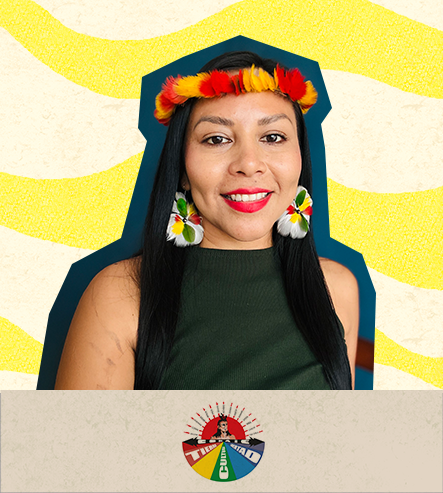
NEMO ANDY GUIQUITA
I am Nemo Guiquita, from the Waorani people. My fight is to be the voice of our rainforest and our peoples in the face of the climate crisis, representing our resistance and our right to a future in our territory. As a defender, my work unites ancestral knowledge with global political demands.
My role in this flotilla is to carry our message to the heart of COP30, proving that we, the guardians, have the solutions. We sail to weave hope and demand climate justice, reminding the world that our home is the lungs of the planet.
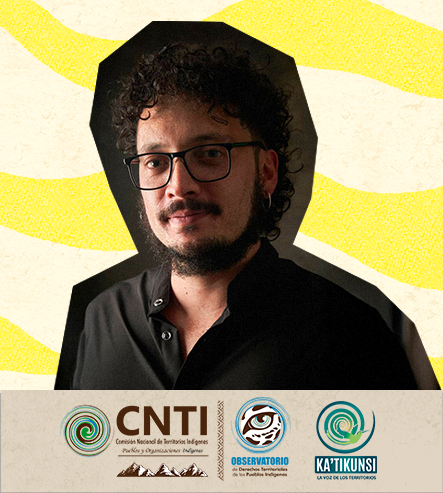
SEBASTIÁN MONTAÑEZ CIFUENTES
I am Sebastián Montañez, a communicator for the National Commission of Indigenous Territories (CNTI) of Colombia. As a photographer and writer, my work is based on the conviction that all communication is a political act in defense of the territories. My role is to drive narrative and audiovisual strategies that strengthen the voices of Indigenous Peoples.
My work aims to ensure our stories are heard in national and international arenas. I believe that our collective voices, told by ourselves, are the most powerful tool to protect our identity and our future.
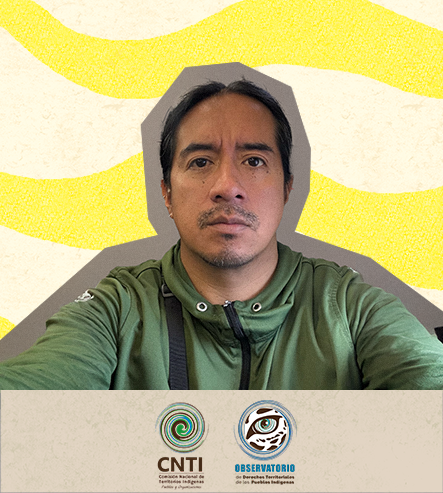
JORGE IVÁN FARINANGO TUNTAQUIMBA
I am Jorge Farinango, a designer and videographer for the National Commission of Indigenous Territories (CNTI) of Colombia. As a Kichwa Indigenous person, my audiovisual work unites technique with a deep personal commitment. My role is to translate our struggles and our identity into images that communicate the importance of conserving our original territories.
My fight is for our identity as protectors of the world’s most biodiverse natural reserves. I believe this work is fundamental, not only for us, but for the future of the entire planet.
